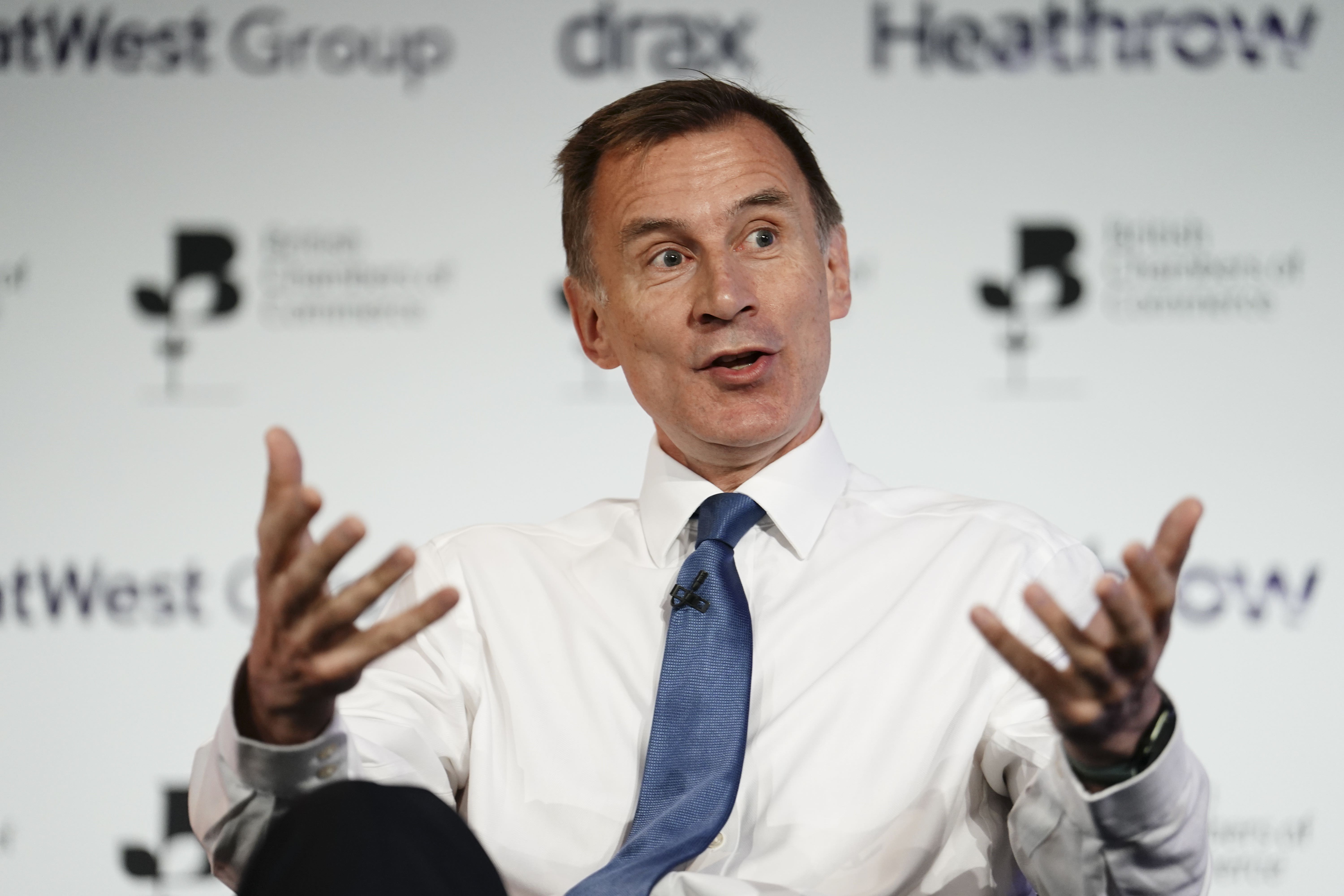Economic growth is back – but the battle with inflation means it may prove fleeting
Jeremy Hunt is left crossing his fingers and hoping the Bank of England can finally tackle rising prices by the end of this year, says James Moore


Britain’s economy is coughing and spluttering like an old banger trying to start on a cold day, but there is growth.
UK plc expanded by 0.2 per cent in April, per the first estimate from the Office for National Statistics. (This number was produced from a limited set of data and could be revised up or down.) It represents a rather limp rebound from March’s 0.3 per cent decline, but a welcome rebound nonetheless.
However, a dive into the figures suggests we shouldn’t get too excited.
It was the service sector that did all the heavy lifting; the dominant sector, which includes everything from your local newsagent to giant City investment banks. It grew 0.3 per cent.
The overall number was dragged down by a reverse in production, which fell by 0.3 per cent (after a 0.7 per cent rise the previous month) and a nasty slide in construction, down 0.6 per cent. A sharp drop in housebuilding was a major cause. The reason for the latter isn’t hard to discern; the housing market has hit the skids, crimping the big builders’ margins. Their fondness for sitting on land banks until the market smiles upon their earnings is something that warrants attention given the problems being created by a shortage of supply.
The root cause of all these difficulties is higher interest rates feeding into the mortgage market and hitting affordability. Unfortunately, they are about to get higher still and their effects will be felt way beyond the housing market.
It was therefore very necessary and welcome that chancellor Jeremy Hunt expressed support for the Bank of England to “do what it takes” in his reaction to the ONS figures.
He and Rishi Sunak very foolishly hitched their wagon to halving inflation by the end of the year, despite achieving the goal being (largely) our their hands. It is the job of the independent Bank, which has become an all too convenient target for the brickbats of some of his colleagues.
“Resilient” was a word Hunt used to describe UK plc on the broadcast round but it will take an awful lot of resilience for the economy to stay in the black as the Bank continues to act to bring inflation down to its 2 per cent target. Its rate increase – or increases – will act as a brake on the economy.
May is likely to be a bad month anyway, what with the extra bank holiday as a result of the coronation, but the longer-term outlook is more important and it looks very cloudy.
Talk of longest slump on record has evaporated thanks to the resilience Hunt referred to; but that other “R” word – recession – is back again as forecasters apply red ink to their numbers.
Further rate rises will take an estimated £12bn out of the consumer economy for a start, because of the extra costs on mortgage borrowers, who will have their discretionary spending limited. Affordable credit for smaller businesses has gone the way of the dodo. How to best support them is something that ought to be on Hunt’s mind.
A technical recession, which requires two consecutive quarters of negative growth, may still be avoided. But it is notable that the Treasury’s response to today’s numbers included a long list of “additional information” including the impact of Russia’s illegal invasion of Ukraine and the “headwinds” it created (you can file that under excuses); Germany’s current woes (irrelevant) and the measures announced in the budget and the Office for Budgetary Responsibility’s upward revision to its forecasts on the back of them.
Hunt is reduced to crossing his fingers and hoping the Bank’s actions to tackle inflation bear fruit by the end of the year. It is not a happy position for the chancellor to be in as an election looms.
Join our commenting forum
Join thought-provoking conversations, follow other Independent readers and see their replies
Comments
Bookmark popover
Removed from bookmarks